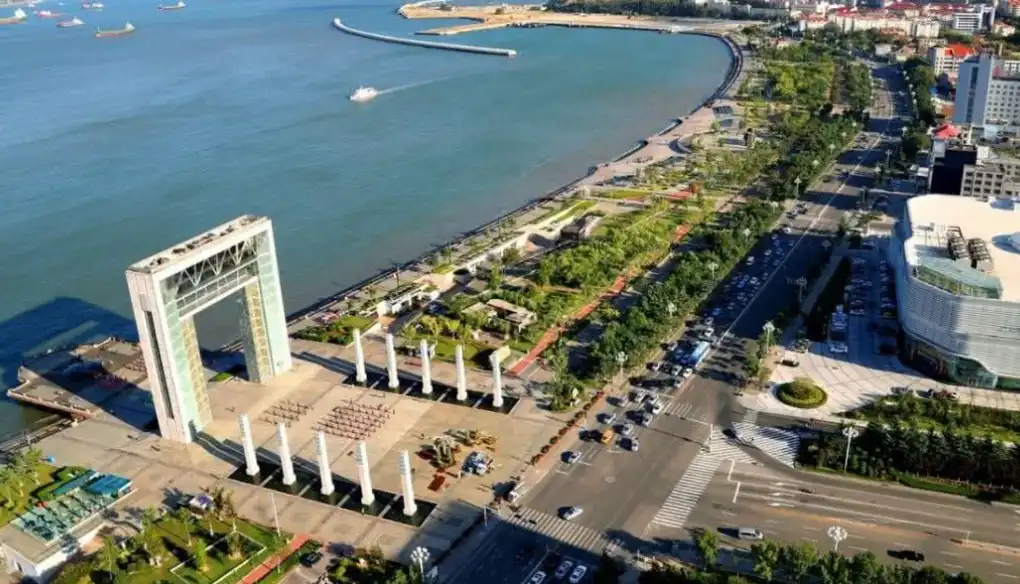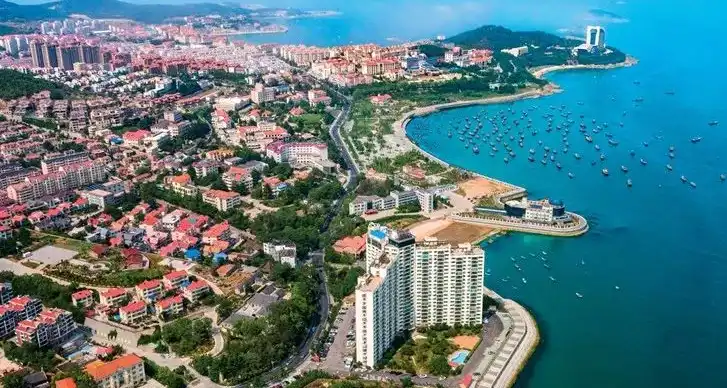Weihai:From being occupied to winning glory for the country, witnessing the rejuvenation of the Chinese nation
Throughout the long course of history, the Chinese nation has experienced countless hardships and tribulations. However, it was these difficult times that forged the unyielding spirit of the Chinese people. On July 1, 1997, Hong Kong's return to the embrace of the motherland marked a profound correction of China's history and a firm defense of national dignity.
On December 20, 1999, just two years later, Macao was successfully transferred back to China, once again demonstrating China's rise and strength. These exhilarating moments are not only engraved on the monuments of history, but also deeply imprinted in the hearts of every Chinese.

In the sacred cause of safeguarding the nation's territorial integrity, every piece of land recovered is baptized with the sweat and aspiration of Chinese people.
Little known is that before the return of Hong Kong, China had reclaimed a piece of land five times larger than Hong Kong, which is Weihai—a city that was occupied by the British for 32 years.
Weihai, this beautiful coastal city on the eastern extremity of the Shandong peninsula, is celebrated not only for its extraordinary geographical setting, but also for its rich historical and cultural legacy.
As the closest mainland Chinese city to Japan and South Korea, Weihai, over the course of history, has been a vital sea traffic hub.
It’s this unique location that made Weihai greatly coveted by imperialism in modern history and finally fell as a British concession.

After the end of World War I, as a victorious nation, China should have recovered its occupied territories. However, Britain was reluctant to return Weihaiwei. It was not until October 1930 that this city, which had been occupied by foreigners for many years, finally returned to the embrace of the motherland. At that moment, the Chinese flag was raised on the city wall of Weihaiwei, and countless Chinese people were moved to tears.
As we all know, the course of history is not always smooth sailing. Shortly after its return, Weihai was once again lost due to war, and it was not until 1945 that it finally stabilized.
This tortuous history has made the people of Weihai cherish peace and tranquility even more, and has also made them more determined to defend the country's territory and dignity.

Today, Weihai is no longer the weak city at the mercy of others. It has taken full advantage of its geographical advantages to actively develop foreign trade, especially economic and trade exchanges with neighboring countries such as South Korea.
In 1990, Weihai opened the first Sino-Korean sea route with Incheon, South Korea, which greatly promoted the economic development of Weihai and the entire Shandong Peninsula.
Through years of unremitting efforts, Weihai has become one of the Chinese cities with the most frequent and close economic and trade relations and communications with South Korea, as well as an important part of the China-South Korea free trade zone.
Weihai's success is not accidental, as it is a vivid epitome of China's reform and opening-up policy and a concrete embodiment of the Chinese nation's indomitable spirit. From Hong Kong to Macao and to Weihai, each return of territory has witnessed China's growing national strength and enhanced international standing.
These historical events not only make us feel proud and honorable, but also encourage us to keep moving forward and strive to realize the Chinese dream of the great rejuvenation of the Chinese nation.
